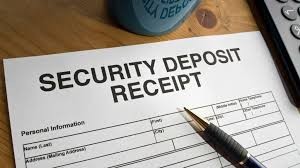 Whether you rent from the Owner direct or their Agent, everyone must follow the North Carolina Tenant Security Deposit Act. This Act sets out the responsibilities for Residential Tenants, Landlords and their Agents regarding holding, use, and disbursement of the Tenant Security Deposit.
Whether you rent from the Owner direct or their Agent, everyone must follow the North Carolina Tenant Security Deposit Act. This Act sets out the responsibilities for Residential Tenants, Landlords and their Agents regarding holding, use, and disbursement of the Tenant Security Deposit.
The Act is referred to by North Carolina General Statute Sections 42 – 50 and 42 – 56. It applies to all residential properties except the rental of single rooms.
It does not require Landlords or their Agents to collect a Security Deposit but most Landlords and Agents do in order to assure that they will be reimbursed if certain specified losses are caused by Tenants.
If a Landlord hires someone to help them manage or rent their property, the person must be licensed by the North Carolina Real Estate Commission and like the Landlord, must comply with the North Carolina Tenant Security Deposit Act as well as the North Carolina Real Estate License Law and various rules adopted by the Real Estate Commission when renting the Owners’ properties.
This article is going to be a 2 part series that will set forth certain Questions and Answers about Tenant Security Deposits in North Carolina and will be published on our website as well as our Facebook page over the two weeks.
Q: How much Security Deposit can a Landlord or their Agent charge?
A: If you are renting a home for a 12-month lease, your Security Deposit cannot be more than 2 month’s rent.
Q: Can my Landlord or their Agent charge me first and last month’s rent?
A: Yes, many times Landlord’s or Agent’s will charge a tenant first and last month’s rent if they have credit issues to ensure payment.
Q: Can my Landlord or their Agent charge me a “Pet Fee?”
A: Yes. In addition to the Security Deposit, your Landlord or their Agent may also charge you a non- refundable pet fee if you plan on keeping a pet at the property or on the grounds. The “pet fee” can be any “reasonable” amount that the Landlord wishes to charge. If your pet damages the property, the Landlord may also keep all or a portion of the Security Deposit as necessary to repair the damage in addition to keeping the pet fee.
Q: What happens to my Security Deposit while I’m a tenant?
A: To ensure that your security deposit is safe during your tenancy, N.C State law requires The landlord or their Property Manager keep it in a “trust account.” The trust account must be maintained in a licensed and insured bank or savings and loan institution licensed in North Carolina. Within 30 days following the beginning of your lease term, the Landlord or Agent must notify you in writing where your security deposit has been placed. This is notification is typically given to the Tenant in the lease. If your security deposit is moved to another bank or financial institution during your tenancy, you must be notified in writing of the new location.
There is one exception to this law and that is if the Owner of the property manages their own property, or the property is being managed by an Agent who has agreed for the owner to hold the security deposit. In this case, the Landlord must (1) notify you and other tenants on the lease of the name of the insurance company licensed to do business in North Carolina; (2) purchase the bond from and insurance company licensed to do business in North Carolina and (3) name you and the other tenants on the lease as payees under the bond’ and (4) assure that the amount of the bond is sufficient to cover the Security Deposit collected. However, this is uncommon as most Landlords require a security deposit.
Check back next week for more information about Tenant Security Deposits in North Carolina by visiting the OBX Housing website
